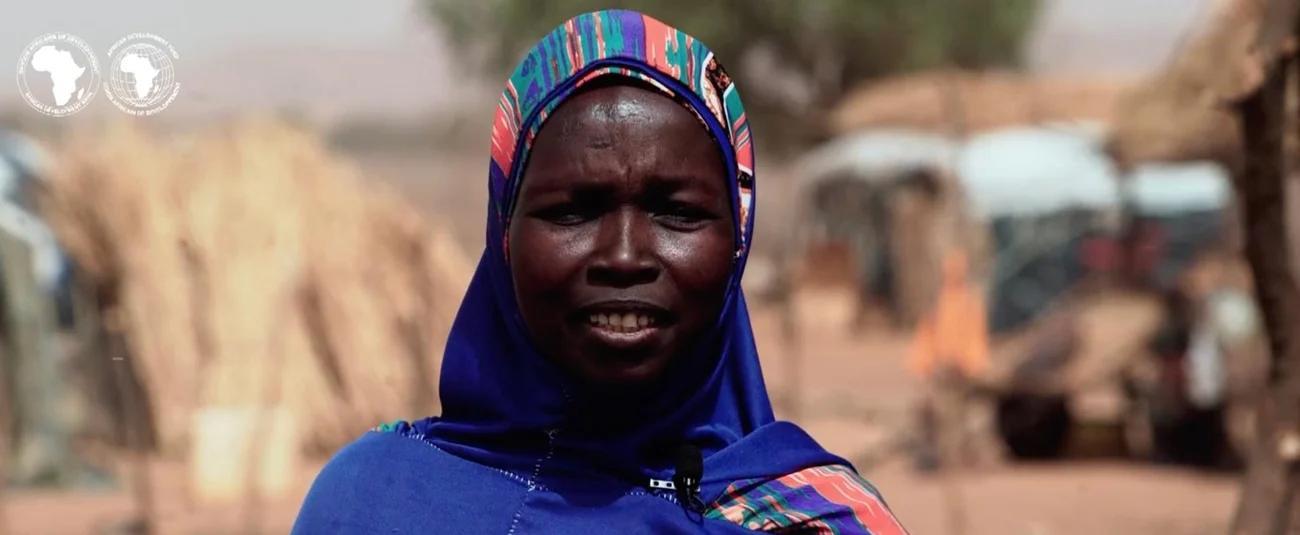
Nathalie Gahunga
Africa-Press – Botswana. When I joined the Bank more than 12 years ago, I was struck by the incredible potential of Africa’s women. I’ve witnessed firsthand how our advocacy, investments, and commitment to inclusive development can transform lives. I see parallels between my own experiences and those codified in the Africa Gender Index 2023 Analytical Report – the African Development Bank Group co-authored source of data on gender equality and women’s empowerment in Africa that draws statistics from all African countries across economic, social, empowerment and representation dimensions into a single index. However, the recently released Africa Gender Index 2023 Analytical Report is more than a set of statistics – it’s a call to action that resonates deeply with me.AfDB Manager Nathalie Gahunga says her work took her to Bank programs that bring the Bank’s Africa Gender Index Analytica Report to life. Watch one of those stories.
I remember working in Niger when a grandmother asked me to adopt her 10-year-old grandson whose mother had died in childbirth. She was struggling to support the family by selling fish. Moments like that reinforce why we work to empower women and girls.
The Africa Gender Index 2023 Analytical Report tells a clear story. On average, Africa’s gender equality score – a numerical value measuring parity between genders in a particular area, with a higher score indicating greater gender parity – stands at 50.3 percent. This is a slight improvement from 48 percent in 2019, when the Bank published our last Africa Gender Index in collaboration with the United Nations Economic Commission for Africa. Yet behind these numbers lie real challenges: women earn 30-40 percent less than men, have limited access to credit, and own less than 20 percent of Africa’s agricultural land. While these statistics are alarming, they also highlight opportunities for change.
The report breaks down our progress and challenges across three key dimensions:
Economic: Despite some gains, economic parity is declining, with women’s overall participation in the labor market decreasing. The Africa Gender Index 2023 Analytical Report shows fewer women are entering or remaining in the workforce, while men’s participation rates have remained more stable. This decline is closely linked to global shocks like COVID-19 and climate change, which have disproportionately impacted sectors where women are overrepresented, such as agriculture, retail, and informal trade. I’ve seen firsthand how systemic barriers such as limited access to finance and land further exacerbate this trend, preventing women to start or sustain businesses.
Social: According to the report, girls now surpass boys in primary and secondary school completion rates across 25 African countries. In countries like Botswana, Lesotho, and Namibia, girls’ completion rates exceed boys’ by more than 10 percentage points. This shift fills me with hope for a more equitable future, where education can serve as a foundation for long-term gender equality.
Empowerment and Representation: While women’s representation in leadership has edged up to 24.4 percent in 2023, compared to 22.4 percent in 2019, they remain vastly underrepresented in key decision-making roles. In the African Gendex Index Report, this is particularly evident in ministerial positions, corporate boardrooms, and parliamentary leadership roles.To me, these insights are a reflection of real lives, communities, and the transformative impact of our work. For example, during a work assignment in Burkina Faso, I witnessed the profound impact of the Bank’s Programme to Build Resilience to Food and Nutrition Insecurity in the Sahel.
The Bank project financing helped provide women’s groups with access to improved agricultural infrastructure, comprehensive training programs, and financing for their microenterprises in sectors such as agribusiness, textile, and food processing.
In the communities I visited, mothers participating in our program were able to generate sustainable incomes, reduce child malnutrition, and send their children to school proudly wearing new uniforms.The Africa Gender Index 2023 Analytical Report challenges African government policymakers, public and private sector professionals working in development, as well as leaders and members of civil society organizations to use the report’s data as a foundation for sustainable action and activities to reduce Africa’s gender equity gap. An example of how the Bank is walking that talk is our partnership with the International Committee of the Red Cross (ICRC) in implementing the Economic Empowerment of Vulnerable Women project.
Since 2020, this initiative has supported women in conflict-affected regions of Niger, Mali, and Chad by providing capital, business training, and market access enabling them to start businesses ranging from small shops to food processing and contributing to their economic independence.
In Mali, Nènè Mahamane Maiga, a widow raising eight children, transformed her life through the program, launching multiple businesses and purchasing a home. Like her, 78 percent of beneficiaries, some earning up to about $500 monthly, have gained financial independence. The project fosters resilience, financial literacy, and social cohesion, ensuring long-term economic empowerment for women in fragile communities.
In my own journey at the Bank, these personal experiences have reinforced my belief that every step toward gender equality is a step toward a more resilient and prosperous Africa. But progress requires collective action.
I invite you to explore the Africa Gender Index 2023 Analytical Report findings and join us in turning data into impact. Let’s work together to break down barriers and create lasting opportunities for every woman and girl across the continent.
african devalopment bank
For More News And Analysis About Botswana Follow Africa-Press





